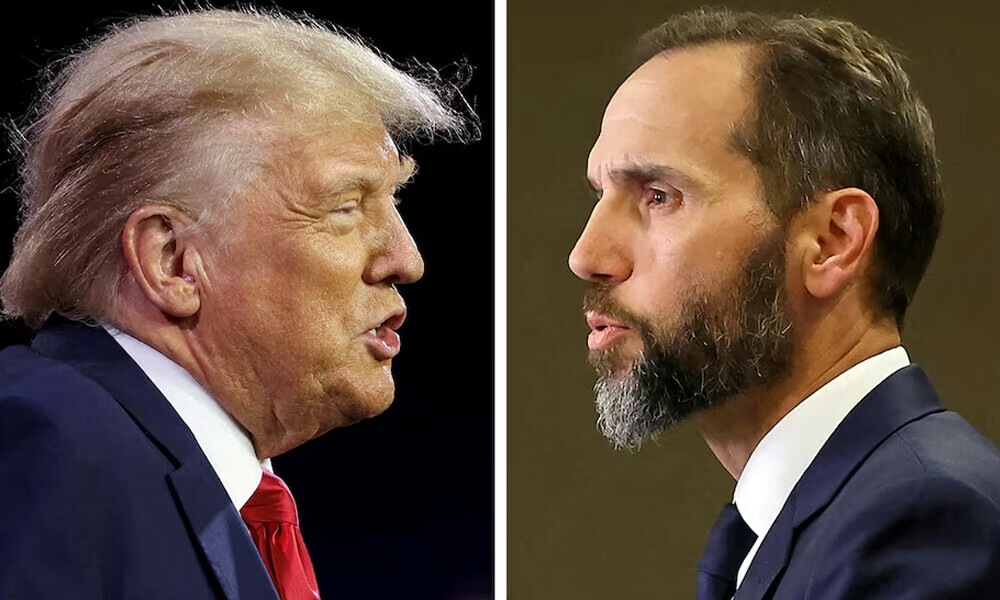After his ultimate presidential election victory in 2024, Donald Trump may finally see the curtain close on two major federal criminal cases that were brought against him by Special Counsel Jack Smith, who has now asked judges to dismiss both. Both cases are allegations that he attempted to overturn the 2020 election and mishandled classified documents after leaving the presidency. He had pleaded not guilty to both charges, insisting they were politically motivated.
Request to Drop Cases Cites DOJ Policy on Sitting Presidents
On Monday, Special Counsel Jack Smith filed motions to drop both cases based on longstanding policy from the Department of Justice barring the prosecution of a sitting president. Smith, in a six-page document, wrote, “It has long been the position of the Department of Justice that the United States Constitution forbids the federal indictment and subsequent criminal prosecution of a sitting President.” He clarified that this dismissal request was based solely on DOJ policy and not the strength of evidence in the cases.
These cases, if approved by a judge, would be closed “without prejudice” so that they could, potentially, be refiled after Trump’s second term.
Trump Responds: Calls Cases “Empty and Lawless
Trump responded to the development on his social media platform, Truth Social, describing the cases as “empty and lawless.” He added: “It was a political hijacking and a low point in the History of our Country. I persevered, against all odds.” Previously, Trump vowed to remove Smith from his position if he won the election, a promise that may now prove unnecessary.
Vice President-elect JD Vance concurred with Trump in saying the prosecutions are “always political.” In one post, Vance wrote on social media that “if Donald J. Trump had lost an election, he may very well have spent the rest of his life in prison.”
Multi-Multi Year Legal Background of the Federal Cases
Smith’s lawsuits against Trump constituted a distinctive chapter in federal judicial actions against a former president. Smith’s original filings concerned Trump’s attempted efforts to overturn the results of the 2020 election. Following the Supreme Court decision in July to grant immunity for official acts performed while in office, Smith modified his complaint on grounds that Trump’s actions were campaign-related rather than official obligations.
A second case accused Trump of illegally holding classified documents at his Mar-a-Lago residence and also convicted Trump of obstruction for interfering with federal efforts to retrieve them. It was nonetheless dismissed by Trump-appointed Judge Aileen Cannon over the alleged wrongful appointment of Smith. A challenge by Smith is pending on two other defendants in the case involving illegal possession of classified documents: Trump employees Walt Nauta and Carlos De Oliveira.
State-Level Criminal Cases Stalled
Trump’s 2024 election victory complicates several ongoing state-level cases against him. In New York, Trump’s sentencing related to a criminal conviction has been postponed indefinitely. In Georgia, he faces charges for his efforts to influence election results, but that case is currently delayed, pending an appeals court decision on whether Fulton County District Attorney Fani Willis can continue to oversee the case despite her past professional relationship with a prosecutor involved.
According to former federal prosecutor Neama Rahmani, it is due to his electoral victory that Trump has been safeguarded from these criminal charges. “It’s well established that a sitting president can’t be prosecuted,” Rahmani said.
What Next?
It is up to the judges presiding over each of these federal cases to finally decide to dismiss them both. Although Smith has indicated he will retire next year, attorneys say Trump’s return to the White House erects a significant barrier to further federal-level criminal proceedings against him at least until his term in the White House ends. State-level cases remain uncertain although some may be held until after Trump’s time in the White House.
The DOJ’s hands are tied with policy, which means that the challenges of Trump in court will pause him some time to think of his renewed presidential term. But appeals and cases at the state level might resurrect attempts to hold him liable after his second term.















